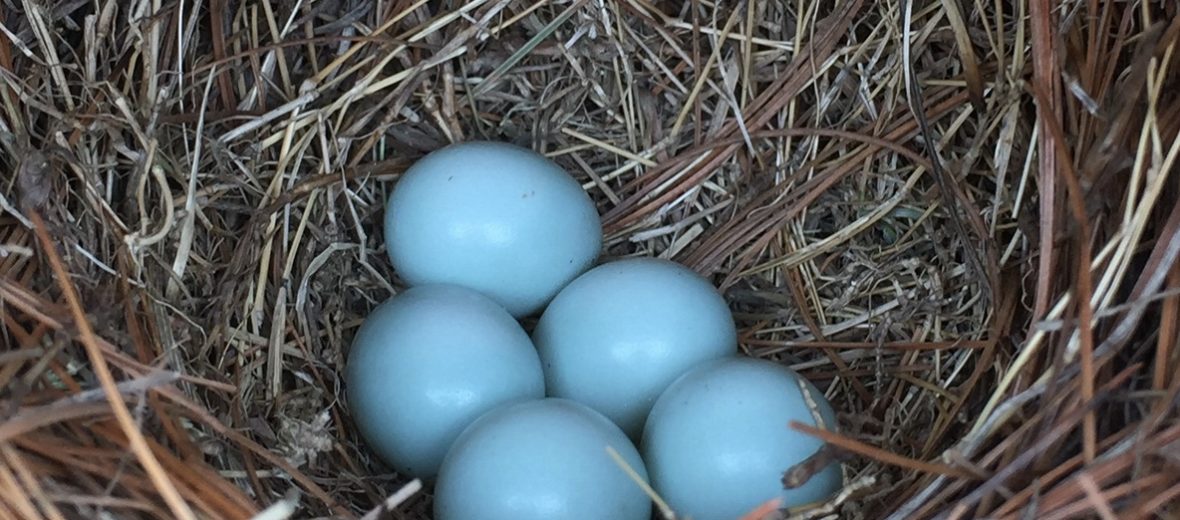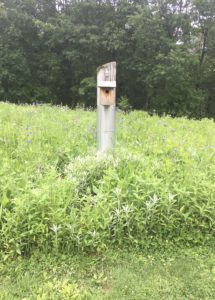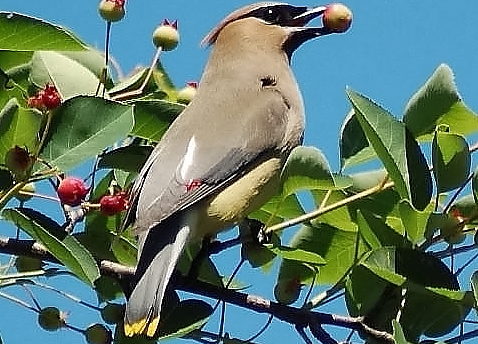
Bluebirds have been nesting successfully in the box on our property for about fifteen years. Most years, they have had two clutches of five eggs. One year there were six eggs. The box is well placed, being in front of our prairie garden, with a wooded area further back.

I have always monitored the progress of the nest: nest-building, egg-laying, hatching and fledging, and noting the dates. The last two years, the monitoring has become more of a necessity, since the parent birds have been quite furtive. The whole process takes place, but I rarely, if ever, see the adults.
This year, I noted that there was a nest on May 6. On May 11, there were eggs in the nest. (I didn’t record how many, but I think there were two.) When the nest was checked on May 18, there were five eggs. Due to bad weather and other circumstances, I didn’t check again until June 12, when I was expecting to find fledglings, but there were still just the five eggs.
What had happened? Was the cold, wet weather a factor? Had something happened to the female? Were the eggs infertile? And what should I do? The decision was put off, and advice solicited.
On June 14, the male bluebird perched just outside our family room, and remained for some time. This was in contrast to the seeming secretive habits of the pair previously. Was he sending a message?
On June 16, we removed the nest in the hope that the male would find a new mate (if in fact the female was gone), and that there would be a new nest soon.
On June 20, we were able to appreciate the success of the decision. There was a completed new nest in the box. By the 23rd, there was an egg in the box, and on the 26th, there were three eggs.
The story points out the value of making notes about observations. The ability to check records so that you don’t have to trust your memory adds to knowledge and guides actions, if they are necessary. ![]()



